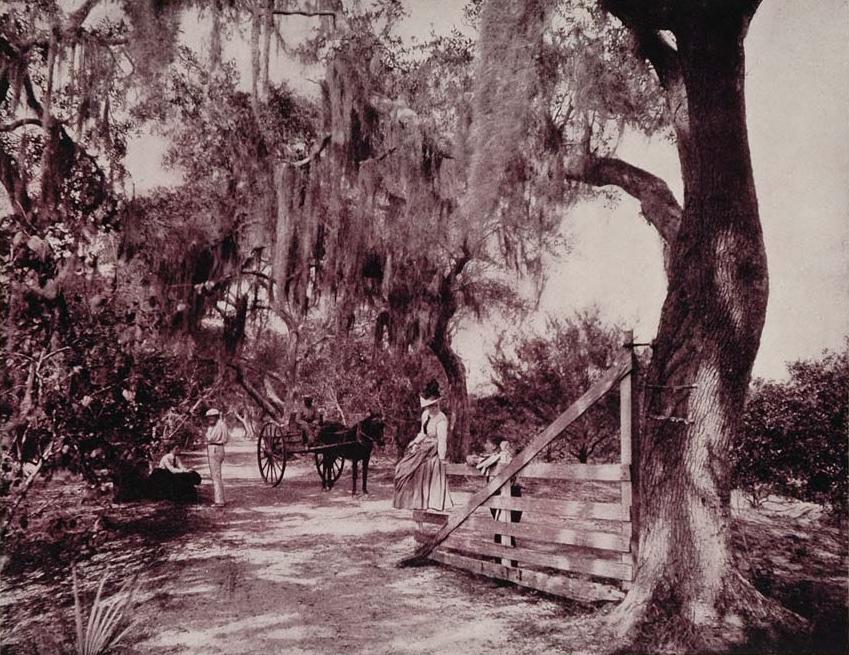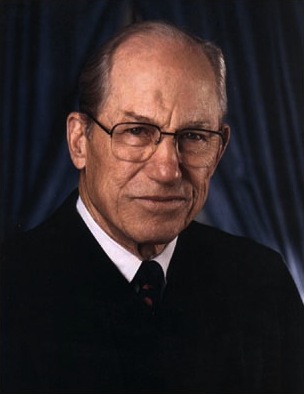|
Charles R. Scott
Charles Ray Scott (January 13, 1904 – May 12, 1983) was a United States district judge of the United States District Court for the Middle District of Florida. Education and career Born in Adel, Iowa, Scott received his Bachelor of Laws from Valparaiso University School of Law in 1934. In 1925, he was title clerk at the Chicago Title & Trust Company in Chicago, Illinois. From 1926 to 1960, he was in private practice in Jacksonville, Florida. He served as a circuit judge of the 4th Judicial Circuit of Florida from 1960 to 1966. Federal judicial service Scott was nominated by President Lyndon B. Johnson on October 11, 1966, to the United States District Court for the Middle District of Florida, to a new seat created by 80 Stat. 75. He was confirmed by the United States Senate on October 20, 1966, and received his commission on November 3, 1966. He assumed senior status on November 12, 1976. His service was terminated on May 12, 1983, due to his death. Notable clerk Andrew McC ... [...More Info...] [...Related Items...] OR: [Wikipedia] [Google] [Baidu] |
Senior Status
Senior status is a form of semi- retirement for United States federal judges. To qualify, a judge in the federal court system must be at least 65 years old, and the sum of the judge's age and years of service as a federal judge must be at least 80 years. As long as senior judges carry at least a 25 percent caseload or meet other criteria for activity, they remain entitled to maintain a staffed office and chambers, including a secretary and their normal complement of law clerks, and they continue to receive annual cost-of-living increases. Senior judges vacate their seats on the bench, and the president may appoint new full-time judges to fill those seats. Some U.S. states have similar systems for senior judges. State courts with a similar system include Iowa (for judges on the Iowa Court of Appeals), Pennsylvania, and Virginia (for justices of the Virginia Supreme Court). Statutory requirements Senior status at the federal level is defined by statute: . To qualify for sen ... [...More Info...] [...Related Items...] OR: [Wikipedia] [Google] [Baidu] |
Florida Circuit Courts
The Florida circuit courts are state courts, and are trial courts of original jurisdiction for most controversies. In Florida, the circuit courts are one of four types of courts created by the Florida Constitution (the other three being The Florida Supreme Court, Florida district courts of appeal, and Florida county courts). The circuit courts primarily handle civil cases where the amount in controversy is greater than $30,000, and felony criminal cases, as well as appeals from county courts. Additionally, since circuit courts are constitutional courts as are courts of appeals, state circuit courts operate under the constitutional consideration of that state's constitution that operates under the Constitution of the United States of America. Therefore, Supreme Court justices can be assigned to state circuit courts of appeals and circuit courts where there is a need by the discretion of the Department of Justice and the Attorney General of the federal government. Circuits T ... [...More Info...] [...Related Items...] OR: [Wikipedia] [Google] [Baidu] |
Settlement (litigation)
In law, a settlement is a resolution between disputing parties about a legal case, reached either before or after court action begins. A collective settlement is a settlement of multiple similar legal cases. The term also has other meanings in the context of law. Structured settlements provide for future periodic payments, instead of a one time cash payment. Basis A settlement, as well as dealing with the dispute between the parties is a contract between those parties, and is one possible (and common) result when parties sue (or contemplate so doing) each other in civil proceedings. The plaintiffs and defendants identified in the lawsuit can end the dispute between themselves without a trial. The contract is based upon the bargain that a party forgoes its ability to sue (if it has not sued already), or to continue with the claim (if the plaintiff has sued), in return for the certainty written into the settlement. The courts will enforce the settlement. If it is breached, the pa ... [...More Info...] [...Related Items...] OR: [Wikipedia] [Google] [Baidu] |
Federal Impeachment In The United States
Impeachment in the United States is the process by which the House of Representatives brings charges against a civil federal officer, the vice president, or the president for misconduct alleged to have been committed. The United States House of Representatives can impeach a party with a simple majority of the House members present or such other criteria as the House adopts in accordance with Article One, Section 2, Clause 5 of the United States Constitution. Most state legislatures can impeach state officials, including the governor, in accordance with their respective state constitution. Most impeachments have concerned alleged crimes committed while in office, though there is no requirement for the misconduct to be an indictable crime. There have been a few cases in which officials have been impeached and subsequently convicted for crimes committed prior to taking office. An earlier version from 2005 is at https://www.senate.gov/reference/resources/pdf/98-806.pdf . T ... [...More Info...] [...Related Items...] OR: [Wikipedia] [Google] [Baidu] |
Volusia County, Florida
Volusia County (, ) is located in the east-central part of the U.S. state of Florida, stretching between the St. Johns River and the Atlantic Ocean. As of the 2020 census, the county was home to 553,543 people, an increase of 11.9% from the 2010 census. It was founded on December 29, 1854, from part of Orange County, and was named for the community of Volusia, located in northwestern Volusia County. Its first county seat was Enterprise. Since 1887, its county seat has been DeLand. Volusia County is part of the Deltona–Daytona Beach–Ormond Beach metropolitan statistical area, as well as part of the larger Orlando–Deltona–Daytona Beach Combined statistical area. History Volusia County was named after its largest community, Volusia, when the Florida Legislature created it by dividing Orange County on December 29, 1854. At the time, Volusia County had about 600 residents. The origins of the word "Volusia" are unclear, though several theories exist: # The name cam ... [...More Info...] [...Related Items...] OR: [Wikipedia] [Google] [Baidu] |
Court Order
A court order is an official proclamation by a judge (or panel of judges) that defines the legal relationships between the parties to a hearing, a trial, an appeal or other court proceedings. Such ruling requires or authorizes the carrying out of certain steps by one or more parties to a case. A court order must be signed by a judge; some jurisdictions may also require it to be notarized. Content The content and provisions of a court order depend on the type of proceeding, the phase of the proceedings in which they are issued, and the procedural and evidentiary rules that govern the proceedings. An order can be as simple as setting a date for trial or as complex as restructuring contractual relationships by and between many corporations in a multi- jurisdictional dispute. It may be a final order (one that concludes the court action), or an interim order (one during the action). Most orders are written, and are signed by the judge. Some orders, however, are spoken orally by ... [...More Info...] [...Related Items...] OR: [Wikipedia] [Google] [Baidu] |
Desegregation Busing In The United States
Race-integration busing in the United States (also known simply as busing, Integrated busing or by its critics as forced busing) was the practice of assigning and transporting students to schools within or outside their local school districts in an effort to diversify the racial make-up of schools. While the 1954 U.S. Supreme Court landmark decision in '' Brown v. Board of Education'' declared racial segregation in public schools unconstitutional, many American schools continued to remain largely uni-racial due to housing inequality. In an effort to address the ongoing ''de facto'' segregation in schools, the 1971 Supreme Court decision, ''Swann v. Charlotte-Mecklenburg Board of Education'', ruled that the federal courts could use busing as a further integration tool to achieve racial balance. Busing met considerable opposition from both white and black people. The policy resulted in the movement of large numbers of white families to suburbs of large cities, a phenomenon known ... [...More Info...] [...Related Items...] OR: [Wikipedia] [Google] [Baidu] |
Claude R
Claude may refer to: __NOTOC__ People and fictional characters * Claude (given name), a list of people and fictional characters * Claude (surname), a list of people * Claude Lorrain (c. 1600–1682), French landscape painter, draughtsman and etcher traditionally called just "Claude" in English * Madame Claude, French brothel keeper Fernande Grudet (1923–2015) Places * Claude, Texas, a city * Claude, West Virginia, an unincorporated community Other uses * Allied reporting name of the Mitsubishi A5M Japanese carrier-based fighter aircraft * Claude (alligator) Claude is an albino alligator ('' Alligator mississippiensis'') at the California Academy of Sciences. Claude lacks the pigment melanin, resulting in colorless skin, and he has poor eyesight associated with his albinism. Background Claude was h ..., an albino alligator at the California Academy of Sciences See also * Claude's syndrome, a form of brainstem stroke syndrome {{disambig, geo ... [...More Info...] [...Related Items...] OR: [Wikipedia] [Google] [Baidu] |
Governor Of Florida
A governor is an administrative leader and head of a polity or political region, ranking under the head of state and in some cases, such as governors-general, as the head of state's official representative. Depending on the type of political region or polity, a ''governor'' may be either appointed or elected, and the governor's powers can vary significantly, depending on the public laws in place locally. The adjective pertaining to a governor is gubernatorial, from the Latin root ''gubernare''. Ancient empires Pre-Roman empires Though the legal and administrative framework of provinces, each administrated by a governor, was created by the Romans, the term ''governor'' has been a convenient term for historians to describe similar systems in antiquity. Indeed, many regions of the pre-Roman antiquity were ultimately replaced by Roman 'standardized' provincial governments after their conquest by Rome. Plato used the metaphor of turning the Ship of State with a rudder; the Latin ... [...More Info...] [...Related Items...] OR: [Wikipedia] [Google] [Baidu] |
Law Clerk
A law clerk or a judicial clerk is a person, generally someone who provides direct counsel and assistance to a lawyer or judge by researching issues and drafting legal opinions for cases before the court. Judicial clerks often play significant roles in the formation of case law through their influence upon judges' decisions and perform some quasi- secretarial duties. Judicial clerks should not be confused with legal clerks/ paralegals (also called "law clerks" in Canada), court clerks (clerks of the court), or courtroom deputies who perform other duties within the legal profession and perform more quasi- secretarial duties than law clerks, or legal secretaries that only provide secretarial and administrative support duties to attorneys and/or judges. In the United States, judicial law clerks are usually recent law school graduates who performed at or near the top of their class and/or attended highly ranked law schools. Serving as a law clerk, especially to a U.S. federal j ... [...More Info...] [...Related Items...] OR: [Wikipedia] [Google] [Baidu] |
Torts
A tort is a civil wrong that causes a claimant to suffer loss or harm, resulting in legal liability for the person who commits the tortious act. Tort law can be contrasted with criminal law, which deals with criminal wrongs that are punishable by the state. While criminal law aims to punish individuals who commit crimes, tort law aims to compensate individuals who suffer harm as a result of the actions of others. Some wrongful acts, such as assault and battery, can result in both a civil lawsuit and a criminal prosecution in countries where the civil and criminal legal systems are separate. Tort law may also be contrasted with contract law, which provides civil remedies after breach of a duty that arises from a contract. Obligations in both tort and criminal law are more fundamental and are imposed regardless of whether the parties have a contract. While tort law in civil law jurisdictions largely derives from Roman law, common law jurisdictions derive their tort law from c ... [...More Info...] [...Related Items...] OR: [Wikipedia] [Google] [Baidu] |
Andrew McClurg
Andrew Jay McClurg (born October 15, 1954) is a professor of law holding the Herbert Herff Chair of Excellence in Law at the University of Memphis Cecil C. Humphreys School of Law, specializing in torts, products liability, privacy law, and firearms policy. from Carolina Academic Press, last visited March 23, 2009. Although he has published numerous academic works, he is also known as a legal , having written two legal humor books, as well as a monthly legal humor column in the '''' that ran for more than four years.< ... [...More Info...] [...Related Items...] OR: [Wikipedia] [Google] [Baidu] |




